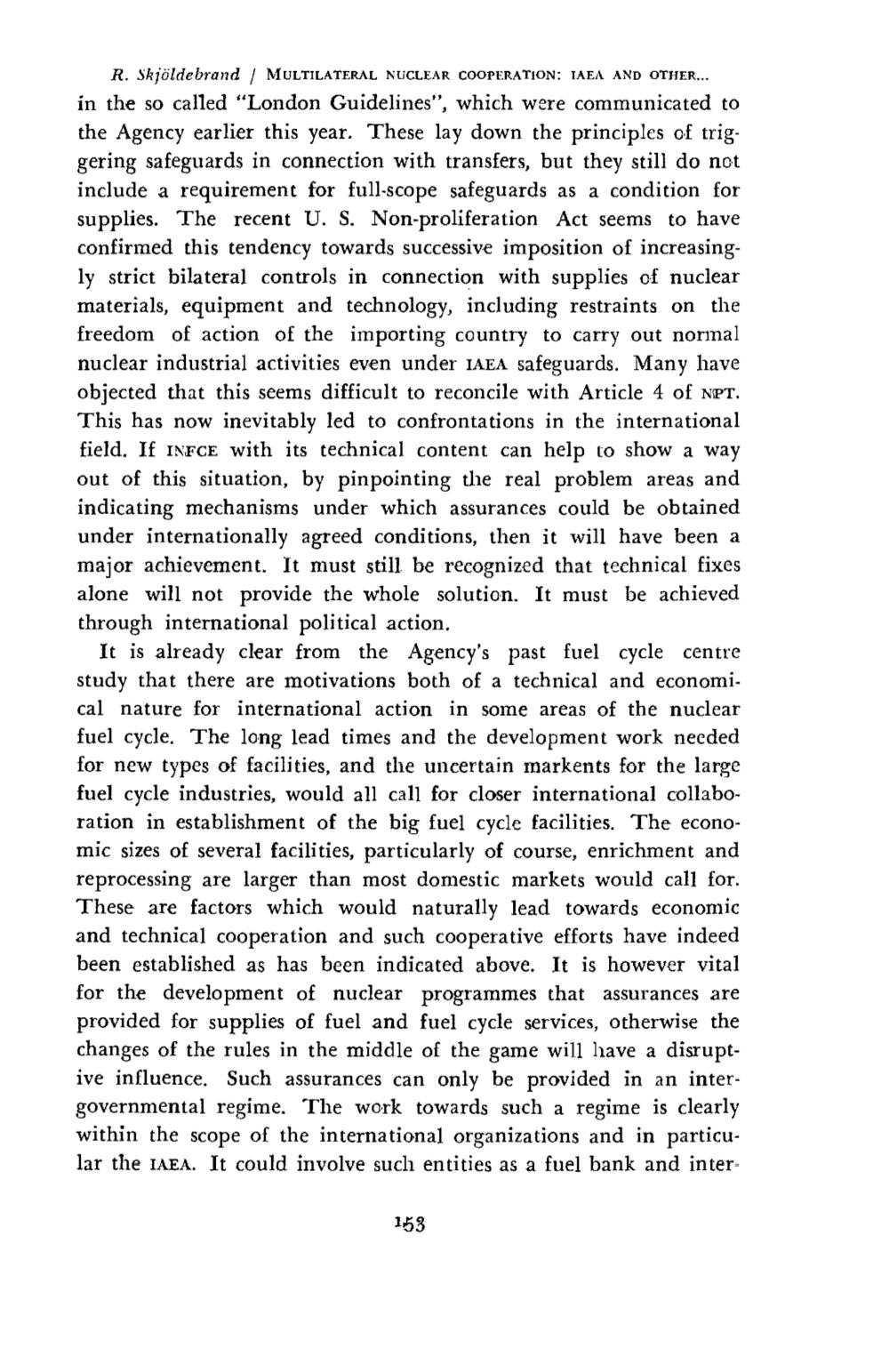
R.
Skjoldebral1d
I
MULTILATERAL NUCLEAR COOPERAT¡ON: IAEA AND OTHER•••
in the so cal1ed "London Guidelines", which were communicated to
the Agency earlier this year. These lay down the principIes o.f trigo
gering safeguards in connection with transfers, but they still do not
include a requirement for full-scope safeguards as a condition for
supplies. The recent U. S. Non-proliferation Act seems to have
confírmed this tendency towards successive imposition of increasing–
ly strict bilateral controls in connection with supplies o.f nuclear
materials, equipment and technology, including restraints on the
freedom of action oE the importing country to carry out normal
nuclear industrial activities even under
lAEA
safeguards. Many have
objected that this seems difficult to reconcile with Article 4 of
NIPT.
This has now inevitably led to confrontations in the international
fie!d.
If
It\FCE
with its technical content can help to show a way
out of this situation, by pinpointing the real problem areas and
indicating mechanisms under which assurances could be obtained
under internationally agreed conditions, then it will have been a
major achievement. lt must stiU be recognízed that technical fíxes
alone will not provide the whole solution. It must be achieved
through international polítical action.
lt is already clear from the Agency's past fuel cycle centre
study that there are motivations both of a technical and economi–
cal nature for international action in some areas of the nuclear
fue! cycle. The long lead times and the development work necded
for new types of facilities, and the uncertain markents for the large
fue! cyele industries, would a11 call for doser international collabo–
ration in establishment of the big fuel cycle facilities. The econo–
mic sizes of several facili ties, partícularly of course, enrichment and
reprocessing are larger than most domestic markets would calI foro
These are factors which would naturally lead towards economic
and technical cooperation and such cooperative efforts have indeed
been established as has been indicated above. It is however vital
for the development of nuclear programmes that assurances are
provided for supplies of fuel and fuel cyde services, otherwíse the
changes of the rules in the middle oí the game will have a disrupt–
ive influence. Such assurances can only be provided in an ínter–
governmental regime. The wo'rk towards such a regime is dearly
within the scope of the international organizations and in particu–
lar the
lAEA.
It could involve such entities as a fuel bank and inter-


